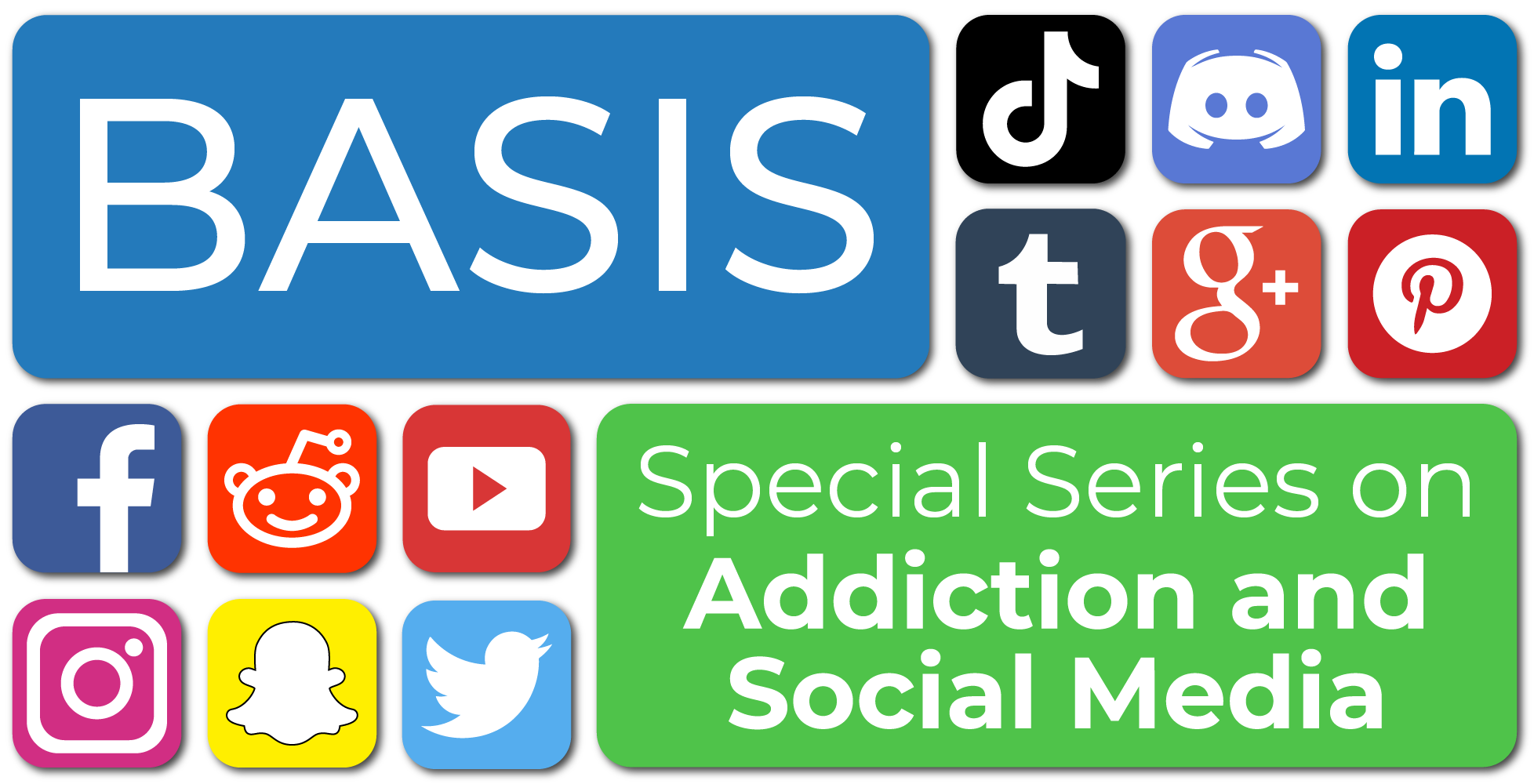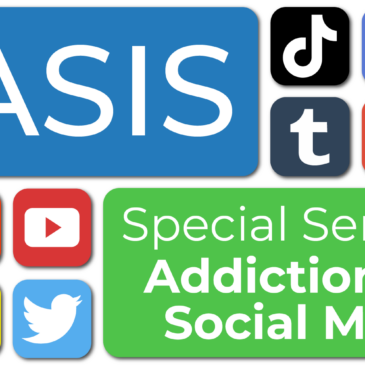
Social media are online and mobile technologies that enable communication between individuals through text, photos, videos, and other forms of user-generated content. But you likely knew that already, because you probably use it. And if you don’t, your kids probably do. For the majority of us, social media use constitutes a major portion of our time online. Websites like Facebook, Youtube, Twitter, and Instagram have altered our relationships with each other and with the experiences we enjoy, including potentially addictive ones.
Many features of social media might contribute to addiction. Posts often depict alcohol, drug, and/or e-cigarette use, and engagement with substance-related content predicts problem substance use. Some platforms support gambling-related games and content. And of course, there’s marketing: gambling, marijuana, alcohol, and vaping brands are all widely promoted on popular social media websites, often aimed at youths. However, social media can also have a positive impact. Some websites host support communities for smoking and marijuana cessation, providing valuable outlets for sharing experiences of addiction. Social media can also be a useful tool for studying addiction, helping researchers recruit participants, analyze online discussions about substances, and understand usage of alcohol, vaping, and other drugs.
This September, we’re focusing on social media and addiction. Throughout the month, we will cover four recently published scientific articles exploring the intersection of addiction and social media. Today, STASH reviews a study examining how and why social media mobile applications are used to purchase drugs. The WAGER will discuss what factors motivate young people to participate excessively in online gambling communities. DRAM will focus on alcohol marketing on Facebook and its impact on users’ drinking behaviors. ASHES closes the series reviewing the efficacy of an anti-smoking social media campaign.
 It’s also important to note that people can develop addictive relationships with the Internet and social media itself. To highlight this phenomenon, we will feature two op-eds from cyberaddiction experts. Dr. Stephanie Diez, addiction professional and founder of the nonprofit Reboot and Recover, will explain how social media hooks us in by satisfying some of our basic needs. Dr. David Greenfield, Assistant Clinical Professor of Psychiatry at the University of Connecticut School of Medicine and founder of the Center for Internet and Technology Addiction, will discuss how social media actually condones antisocial tendencies.
It’s also important to note that people can develop addictive relationships with the Internet and social media itself. To highlight this phenomenon, we will feature two op-eds from cyberaddiction experts. Dr. Stephanie Diez, addiction professional and founder of the nonprofit Reboot and Recover, will explain how social media hooks us in by satisfying some of our basic needs. Dr. David Greenfield, Assistant Clinical Professor of Psychiatry at the University of Connecticut School of Medicine and founder of the Center for Internet and Technology Addiction, will discuss how social media actually condones antisocial tendencies.
As always, we hope you enjoy and learn from these reviews. In the spirit of this Special Series, we invite you to post your comments below.
–Jamie Juviler




